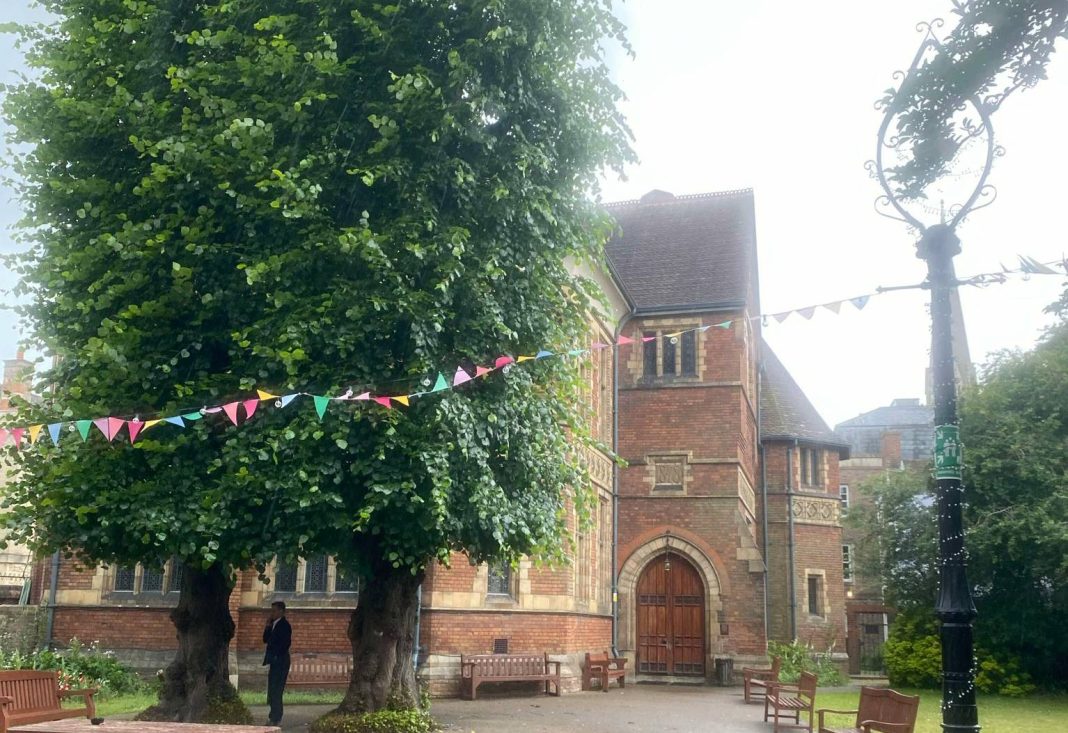Last night the Oxford Union passed the motion “This House believes that no one can be illegal on stolen land”, with 98 members voting in favour and 82 members voting against.
It was preceded by the emergency debate on the motion “This House believes that nothing ever happens”. With a close split, the chamber decided that something sometimes does happen.
Opening for the proposition was the President of the Union, Anita Okunde. She argued that “every single border was drawn with nothing…but blood”, pointing to examples ranging from New Zealand and Palestine to the US and African countries. This, she contended, means that borders and citizenships are arbitrary. She also maintained that “the global war on migrants” is a continuation of the colonial legacy and entails a “war on indigenous people”. Speaking of the opposition speakers the President noted an interesting coincidence: all of them were white men.
The first opposition speaker was Victor Marroquin-Merino, a standing committee member. He was surprised to see the President arguing for the motion, considering she passed the motion banning the ex-president from the Union premises. Marroquin-Merino argued that the motion is a “slogan” and the propositions’ argument is unrealistic. He called the motion a luxury belief, “idea that signals virtue without any of the costs” and “crashes and burns” when faced with reality. He noted that by this logic no law on stolen land would hold, causing “the state of nature”. “The questions of legitimacy cannot depend on questions of origins”, he concluded.
Then, Yeji Kim, Director of Media and a scholar of forced migration, spoke arguing that historical justice demands “visas as reparations”. She argued that colonial powers bear responsibility for the consequences of them creating artificial borders, and without it they would commit “moral betrayal”. To exemplify this, she spoke of cases like those of Chagos Islands, Hong Kong, and Gaza, where colonial rule triggered displacement of the indigenous people, who then did not receive consideration for visas in the UK. “Justice is…a passport in a pocket”, Kim concluded.
Up next was Andrew Arthur, resident fellow in Law and Policy for the Centre for Immigration Studies. He argued that people hardly ever lived on land that was not stolen. He asserted that the current system is “generous”, but “you gotta [sic.] play by the rules”. He argued that unfiltered immigration would make the assimilation of migrants in society impossible and have a negative impact on social services and working conditions. He ended the speech by saying, “if you support immigration as I do…you must be against this motion.”
He was followed by Aviva Chomsky, an American professor specialising in Latin history and immigration. Her first claim was that the “term illegal is illegitimate when applied to human beings” and this “colonial term” is used to justify exclusion and legal inequality. Further, she argued that defining immigrant workers, whom Western economies depend on, as illegal justifies their exploitation and a refusal to grant them citizenship. She also maintained that many immigrants are indigenous people who have been forced to migrate, so colonial history must be reckoned with.
The next speaker, RJ Hauman, President of the National Immigration Centre for Enforcement (which eerily abbreviates to NICE), said the motion was personal to him considering years of “advising the White House”. He spoke of how abandoning tight immigration control causes the exploitation of social benefits, the destruction of patriotism, and many other detrimental effects. “The virus then consumes its host”, as he put it. Hauman then declared that “Western people are under siege” and face displacement by illegal immigrants that “wanna possess [sic]” the US. He then said that even if the land was taken in a “harsh way”, the dwellers of it should not bear the consequences. Hauman spoke out against Biden’s administration saying that under their rule “borders became suggestions”. “My duty is to preserve, not to apologise to oblivion”, he rounded up.
The final speaker for the proposition, Senator Mehreen Faruqi, the first Muslim woman in Australian Parliament, paid respect to the aboriginal land that is Australia and lamented its “grievous immigration regime”. She argued that instead of acknowledging the colonial legacy and injustices against the indigenous people, Australia “doubled down”. Senator Farqui contended that the system is still racist and colonial, and is used to maintain white nationalism, of which she remarked that “the speaker before me made the case better than I could have” (Hauman seemed to have a very intense internal monologue at these words). She concluded by calling for racial justice, which can only be achieved by the motion.
The debate was concluded by Deputy Prime Minister of New Zealand David Seymour. He made a few concessions to the proposition, agreeing that every border is drawn in blood. However, he believes that drawing a line in history of where the “stealing” began would be arbitrary and would only “reinforce prejudices”. Seymour claimed that improving the state is only possible if the state is able to set their own laws. He concluded by saying that the opposition also wants to improve the well-being of citizens, but “[w]e just have a more critical, not idealistic way of doing it”.


